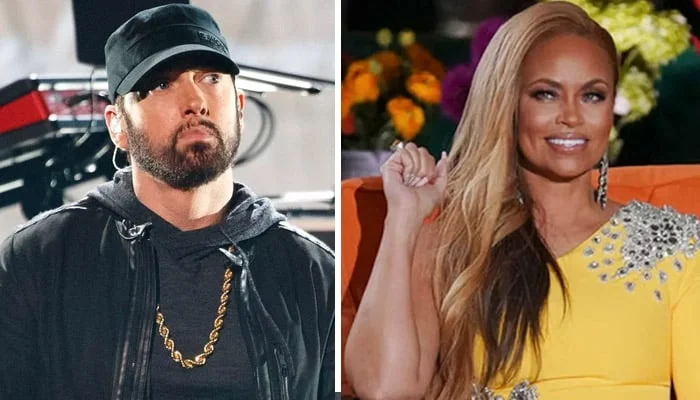
When Music Legends and Reality Stars Collide: What’s Really at Stake in This Shady Dispute?
In a surprising twist of the entertainment world, a high-profile legal battle between rap icon Eminem and reality TV star Gizelle Bryant has captivated fans and legal experts alike. At its core, this dispute revolves around intellectual property rights and the potential for brand confusion, highlighting how fiercely celebrities protect their legacies. As trademark wars become increasingly common in the digital age, this case underscores the high stakes involved when public figures clash over names and images.
The controversy began when Bryant and her co-host from "The Real Housewives of Potomac," Robyn Dixon, launched their podcast "Reasonably Shady" in 2021. Eminem, known for his alter ego Slim Shady, objected to their trademark application in early 2023. He argued that the name could mislead consumers, given his longstanding use of "Shady" since 1998 for music, merchandise, and branding. This objection escalated into a full-blown lawsuit, drawing attention to the blurred lines between pop culture and legal battles.
Bryant's legal team countered that there was no risk of confusion, emphasizing the podcast's focus on reality TV drama rather than rap music. They stated, "Robyn Dixon and Gizelle Bryant deny any likelihood of confusion between Mather's trademarks and their Reasonably Shady mark," as reported in filings via Page Six. The situation intensified when Bryant's side demanded Eminem's in-person deposition, citing fairness since they had been deposed in a related case. Eminem's attorneys, however, filed a protective order, calling the request "unduly burdensome" and suggesting his manager, Paul Rosenberg, could testify instead.
The United States Patent and Trademark Office (USPTO) sided with Eminem, ruling that Bryant and Dixon failed to provide enough evidence to justify the rapper's direct involvement. This decision marked a pivotal moment, leaving the reality stars to navigate the ongoing proceedings. Amid the legal drama, Bryant shared her personal frustrations in an exclusive interview with PEOPLE, calling the dispute "foolishness" and expressing a desire for it to end. She noted, "The Eminem lawsuit is still going. We're at the tail end, but it's on their timeline."
Adding a touch of family dynamics to the story, Bryant revealed that her children have taken a firm stand against Eminem's music. In the same PEOPLE interview, she disclosed that her daughters—Grace, 20, and twins Angel and Adore, 19—insist on turning off the radio whenever his songs play, a direct response to the lawsuit. This personal anecdote highlights how such conflicts ripple beyond courtrooms, affecting everyday lives and family loyalties. Comparing the two sides, Eminem's decades-long brand dominance contrasts sharply with Bryant's rising profile in reality TV, raising questions about fairness in trademark enforcement.
Analysts suggest this case could set precedents for how intellectual property is defended in an era of viral podcasts and social media. While Eminem's team emphasizes protecting a legacy built on global hits like "The Slim Shady LP," Bryant's podcast has still thrived, boasting over 10 million downloads in its fifth season. The feud exemplifies the entertainment industry's cutthroat nature, where a simple name can spark heated battles over fame and fortune.
In conclusion, this trademark dispute between Eminem and Gizelle Bryant serves as a reminder of the complexities in celebrity branding and the personal toll of legal fights. Will it pave the way for more amicable resolutions in similar cases, or intensify the "shady" world of intellectual property wars? As the story unfolds, it's clear that the impact extends far beyond the parties involved. We invite you to share your thoughts in the comments below—do you think Bryant and Dixon stand a chance, or is Eminem's legacy untouchable? Don't forget to like, share, and join the conversation on this fascinating clash of worlds.